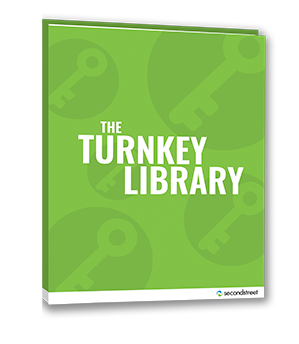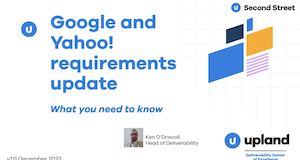It sounds like you’re really excited about this change. What makes this such great news to Entercom and other broadcasters?
Carrie Ward: There are just so many ways this is going to benefit our industry.
-
- Less Confusion: We are human and can make mistakes. When the rules are read on-air, sometimes it isn’t crystal clear. Having the rules posted online will help to alleviate confusion, not only for us, but also for our audience. In return, this new clarity, should also help lower some station legal costs as well.
-
- Improve Programming: No one likes the speed-reading of contest rules – it’s a lot of unnecessary clutter that just jumbles up your air time. I think listeners are really going to like getting rid of this so they can really enjoy their listening experience.
- More Promotions: This is a HUGE benefit to us. Many programming directors cringed when they were presented with complicated contests that would need long instructions read on-air, but that’s not an issue anymore. Now, we literally have more time to run these promotions. Without having to reserve so much time for reading rules, we can push even more contesting. And you all know, more promotions means more revenue opportunities!
Initially, what gave you the idea to submit a change petition?
CW: Almost four years ago, I spoke with Jack Donlevie, the former general counsel at Entercom about the possibility of changing these outdated rules. While we were admittedly a bit skeptical it would ever happen, we agreed that we should try to get these rules that no longer worked for radio updated. In January of 2012, we officially filed our petition. Then, we waited.
Jack and I began doing a bit of lobbying and met with representatives from the FCC. The reps were surprised to hear how frequently media companies were fined for minor infractions against the rule. It was after these discussions that our petition started gaining traction. About a year later (in 2013), our petition was put out as a public notice by the FCC and received more than 100 comments of support.
It languished there for about two years, then FCC Commissioner Michael O’Rielly got a hold of it in the record. He thought it was a great idea and this really got the Chairman’s attention. While we had to file more comments throughout the process, when the FCC made their notice of proposed rulemaking announcement in September 2015, it was pretty similar to what we had submitted back in 2012.
Now that it’s official, what should broadcasters expect?
CW: The official date of implementation should come sometime in mid to late January 2016. This is just such a HUGE win for everyone in broadcasting – not only will this help radio stations, but it’s also going to positively affect TV stations as well.
At Entercom, what are you doing to prepare your stations for the change?
CW: So much of what we do is centered around the rules of the FCC, so there will be quite a bit of work to redo our current material terms, develop new training materials, and educate our radio stations on our best practices, for instance, stations still need to announce where the online rules are located.
The new rules are not mandatory. Do you foresee any reason not to post the rules online?
CW: We run a lot of promotions that are complicated where reading the rules aloud can easily take more than 60 seconds. For these cases, being able to preserve that precious air time by putting the information online is a fantastic time saver and money saver. However, we also run a lot of daily contests that are simple listen-to-win contests. In this case, since the rules are so simple and these change so frequently, it will probably be easier to still have the rules spoken instead of taking the time to upload to our website.
What concerns do you have about the rule changes?
CW: This is a really great change and, in all honesty, I can’t see a drawback to the new rules. That being said, our biggest concern is that there may be stations who view these updates and think they can get rid of their rules entirely. We don’t want this to get lost in translation, so we are trying to make sure all of our radio stations get the right information and are given our best practices for putting them into action when January rolls around.
What else should other broadcasters know about this?
CW: This is just such a big win for all of us because it’s going to get rid of all that clutter! It will eliminate a lot of the confusion that went along with the contests in the past, making a better environment for broadcasters and our users.
I went to the FCC in September on the day that the proposed rulemaking was officially announced. While I was there, I spoke with FCC Commissioner O’Reilly. He told me to keep proposing changes to rules that don’t make sense to your industry. It’s great to know that the FCC isn’t just open to hearing our issues, but are open to trying to change aspects to make our industry even better.





